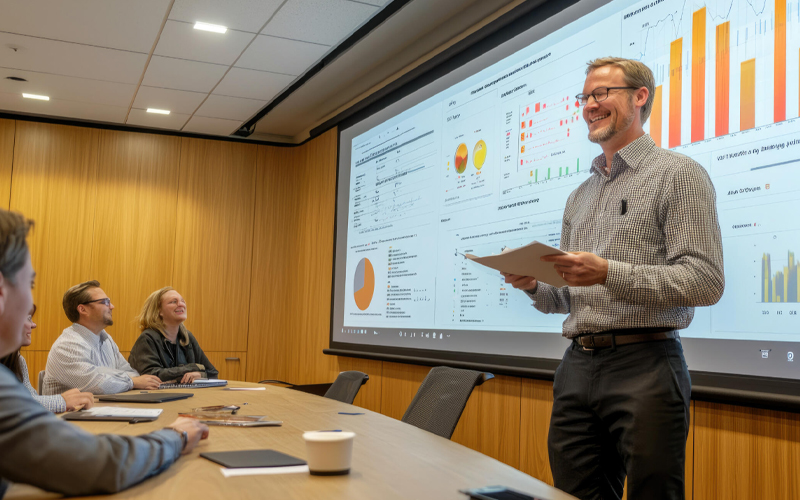In the very near future, at least many if not all articles/blogs that we read may be written by artificial intelligence (AI). It could be hard to guess if it is worded by a human or a machine. Is this change positive or negative? Is it competition for us or will it help us? With the information that we have right now, we may as well treat AI as complementing and compounding our work rather than acting as competition.
With AI In content marketing soon becoming indispensable in varied sectors, can its influence on marketing be far off? The newest tool of AI in the offing – the ChatGPT by Open AI has created quite a storm in the tech world and has the crème de la crème of the IT world scamper to safeguard their pie. While there has been much awe, excitement and curiosity around just how much and how far this new tool could influence the digital world and the way we do business, there is also some fear and insecurities among people on whether it could impinge and encroach on areas which were hitherto only attributed to human capabilities and capacities. We are no doubt a fortunate generation to witness this ongoing digital evolution with all its complexities.
At this interesting juncture, let us cast a bird’s eye view on how AI in content marketing has impacted the world of content marketing. The essence of content marketing is to ensure that the content has to be relevant and valuable to the customer. For any content to make its way to the digital world, it has to go through the same broad steps – keyword research, review of existing data, study of current trends, creation of content and its optimisation/personalisation and/or testing.
Content Research – Search engines are being continuously optimised for throughput of data that is relevant, correct, valuable and updated. The buzzword is Search Engine Optimization (SEO). It is an AI driven process of sharpening the searches and presenting the most precise page rankings. AI’s foremost use in marketing is its ability to process the large amount of ever-increasing data, analyse the trends according to the needs specified. According to a SalesForce’s State of Marketing report, 51% of marketers are already using AI.
Content Creation – OpenAI’s GPT-2 model is in use for the longer form of content creation. As AI in content marketing advances, we could be looking at a future where we are working in tandem with AI for content creation. AI could generate content sifting through millions of documentations available online, and human intelligence could be used to review the content for its relevance, appropriateness, insight and so on.
Content Personalisation – One of the main gains of using AI in marketing is it can offer personalised marketing for the customer base which could run into millions. This would have been humanly impossible to achieve without computing capabilities. It is like drawing a unique customer journey for every person based on their own digital footprints available.
Analytics and Predictive Intelligence- Predicting customer trends for the near and far future can arm marketers with strategies that can be implemented with precision. It can help spot new target audiences, retain old ones and predict customer wants. All this is data-driven, so the strategies formulated based on this would be less error prone and primed to yield success.
Natural Language Processing (NLP) – No discussion on AI would be complete without the mention of NLP and/or Natural Language Generation (NLG). This is the mainstay of AI. It is the computer program equivalent of understanding human language and responding accordingly. The success of NLP lies in how closely it can mimic a human response to a query; how closely it can think like a human. The chatbot boom is attributed to the advances made in NLP. Content creation for product descriptions, reviews, creative write-ups are all very much in its application radar.
The uncomfortable question on content marketing is whether AI might completely replace human effort. The same was asked decades earlier when computers came to fore in almost all areas of human work. They did replace humans in many aspects, but definitely did not render us obsolete. We can exhibit the same optimism with AI too.
*For organizations on the digital transformation journey, agility is key in responding to a rapidly changing technology and business landscape. Now more than ever, it is crucial to deliver and exceed on organizational expectations with a robust digital mindset backed by innovation. Enabling businesses to sense, learn, respond, and evolve like a living organism, will be imperative for business excellence going forward. A comprehensive, yet modular suite of services is doing exactly that. Equipping organizations with intuitive decision-making automatically at scale, actionable insights based on real-time solutions, anytime/anywhere experience, and in-depth data visibility across functions leading to hyper-productivity, Live Enterprise is building connected organizations that are innovating collaboratively for the future.








